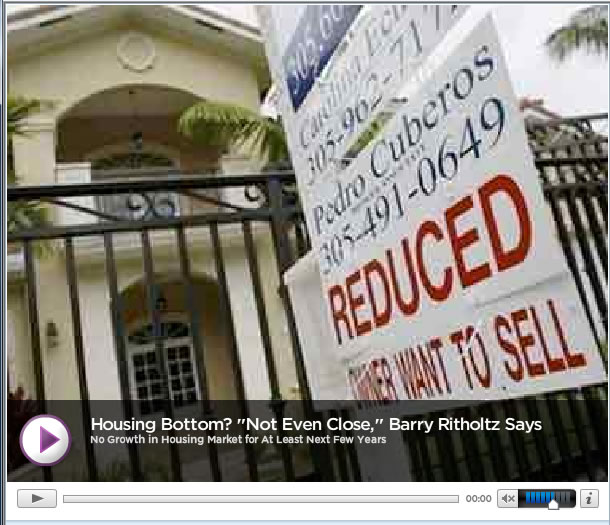Barry Ritholtz, Bad Economy Could Spell Good News For Wall Street for Years
Stock-Markets / Financial Markets 2009 Nov 25, 2009 - 09:49 AM GMTBy: Trader_Mark
 It has been a very typical Thanksgiving week thus far; remember the winning percentage on Wed & Fri around Thanksgiving Thursday is over 80% since 1950. So the indexes have been up each day this week, and speculative fervor has hit pockets of the small cap, speculative universe. It's textbook action. All the computers are waiting on for now, is that break over S&P 1112-1113 so we can all pile in like lemmings for the next leg up.
It has been a very typical Thanksgiving week thus far; remember the winning percentage on Wed & Fri around Thanksgiving Thursday is over 80% since 1950. So the indexes have been up each day this week, and speculative fervor has hit pockets of the small cap, speculative universe. It's textbook action. All the computers are waiting on for now, is that break over S&P 1112-1113 so we can all pile in like lemmings for the next leg up.
Two nice videos below with Barry Ritholtz, who I always call the "grandfather of financial blogging". Barry had been very bullish for much of this rally but the breakdown we saw in late October, including the 5-6 intraday reversals we noted had him reconsidering. But he appears back in full bull mode. As I keep saying, things that in the past you used as historical guides as warning signs (such as the market behavior in 2nd half October) have been tossed aside as if they don't exist. So as of November 1st, all our yellow lights were blown to pieces and its effectively been back to (bullish) normal on the major indexes and big caps at least. Not quite so wonderful in the small/mid cap space as a whole as many stocks are simply treading water or down a bit.
For those of you new(er) to the stock market, and who cannot reconcile what is happening in the market to what you might see in your everyday life (Main Street economy) I think this first video is very important to watch. At this current moment we have the perfect Goldilocks stock market... good news means good things, and bad news means easy money forever. Hence there is no bad news. Yesterday's Fed statement minutes, which parallels this line of thinking, had me laughing out loud. They offer "good news" for the future but conclude they still must offer drugs at an epic rate. Another "have your cake and eat it too" analysis. They conclude that the economy will grow almost at trend growth (2.5%) as we go forward. Which sounds great! But then why do we need record levels of interest rates, purchase programs, and stimulus? I mean if we are going to almost be "at normal" growth rates why all the morphine? The other thing that made me laugh is anyone believing in a forecast from these folks who completely missed the bubble, who thought unemployment would peak below 7% as of 20+ months ago, and who generally are as wrong as the typical CNBC pundit. I guess past performance means nothing.
But getting back to Barry's video - we are now reaching the point where the market will not want "too much" good news. Because the more good news we get the end data (in theory) for all the easy money in the economy. That's how it USED to work anyhow. I have stated for well over a year now that the easy money will be us for a very long time, and interest rates will not be increased in the entire year of 2010. A year ago that was laughed at but now its becoming the consensus... even 3 months ago summer 2010 was assumed to be the first series of rate increases. So there is even a chance that "good news" won't push the Fed into increasing rates ... talk about a perfect world for Wall Street.
As for the second video, Barry agrees with much of what my views have been as well. Until any form of reality returns to mortgage rates, and the government begins to finally step away from subsidizing every step of the housing process we will not have a true bottom. That said, many "temporary" government programs never cease to go away, so our new normal might be a permanently subsidized housing market. Speaking of, as of this week, the Fed has successfully pushed mortgage rates back to their all time lows. Rejoice. When I see mortgage rates back over 6.25% or so, and then see the effect on housing prices - I'll be more inclined to start talking bottoms. At this rate that may be 2013. But from here I expect a less dramatic housing market, that begins to become more regional in nature (i.e. back to normal) and the drops in pricing less so than we saw in 07-09.
On to the videos:
1) A Bad Economy Could Spell Good News for Wall Street for Years to Come

The economic recovery isn't as strong as first thought. Revised GDP figures released this morning show the economy grew at a 2.8% annualized pace in the third quarter, less than the 3.5% initially reported. The revision was in-line with expectations but shows the economy didn't have as much momentum heading into the fourth quarter as previously believed.
Unlike Wall Street traders, consumers seem to know the recovery is "anemic," as Barry Ritholtz, CEO of Fusion IQ, describes it. The Conference Board's latest confident survey shows Americans feel worse about the current economic situation than they did in March, when the stock market was making new lows. (Thanks to Dan Greenhaus of Miller Tabak for pointing this out this last fact.
Yet, stocks are still near their highs of the year.
What's driving the disconnect between Wall Street and Main Street.
Ritholtz says it's a classic example of bad news being good news on Wall Street. "We're in a cycle that's not based on profitability, not based on expanding economy but based on all sorts of government supports," he says. "Bad news is going to be good news for the next couple of quarters probably."
That's because low interest rates and liquidity provided by the Federal Reserve, coupled with government stimulus are enticing traders to buy into the market. "Cash is trash," says Rithotlz, who remains bullish on stocks.
Ritholtz is confident that eventually fundamentals will prevail and thinks the market will take a hit once the economy shows signs of improvement, meaning the "extraordinary" stimuli can be removed.
But predicting the timing is anyone's guess. "You could have this disconnect that goes on for not days, weeks or months but years and years," he says.
So, in the meantime, Ritholtz – who correctly predicted the 2008 crash and told Tech Ticker's audience "the mother of all bear market rallies," was upon us in March - is still long stocks and likes commodities (thanks to a weak dollar) and emerging markets.
2) Housing Bottom? "Not Even Close" Says Ritholtz

A fifth-straight monthly gain for the Case-Shiller Index Tuesday and Monday's stronger-than-expected existing home sales report is giving renewed hope to the housing bulls.
"Disregard them," says Barry Ritholtz, CEO of Fusion IQ, who notes the existing home sales number was juiced by sales of cheap condos and various government programs. Meanwhile, the Case-Shiller results were below expectations.
We are "not even close" to a bottom in housing, says Ritholtz, who estimates national house prices remain 15-20% overvalued, based on the traditional metrics of: median income-to-median sales price, the cost of owning vs. renting, and housing stock as a percent of GDP.
"Until we start seeing a healthy housing market that can stand on its own, without government props, without distressed properties selling 60% off peak levels - that's how you know the bottom is in," says the blogger and Bailout Nation author.
The likely best-case-scenario for housing is several years of sideways action for prices, wherein population growth and a firmer economy combine to sop up the still huge inventory of homes on the market.
"And that's if we're lucky," Ritholtz says, citing the lackluster environment for jobs and wages, as well as CoreLogic's analysis that 23% of all U.S. mortgage holders are under water, as reported in The WSJ. With so many Americans owing more money than their homes are worth, the recent rise in foreclosures and so-called jingle mail is "not nearly done," he warns.
In sum, expect more homes for sale at distressed prices and more downward pressure on prices overall -- unless the "real" economy shows dramatic improvement, which Ritholtz doesn't see anytime soon
By Trader Mark
http://www.fundmymutualfund.com
Mark is a self taught private investor who operates the website Fund My Mutual Fund (http://www.fundmymutualfund.com); a daily mix of market, economic, and stock specific commentary.
See our story as told in Barron's Magazine [A New Kind of Fund Manager] (July 28, 2008)
© 2009 Copyright Fund My Mutual Fund - All Rights Reserved
Disclaimer: The above is a matter of opinion provided for general information purposes only and is not intended as investment advice. Information and analysis above are derived from sources and utilising methods believed to be reliable, but we cannot accept responsibility for any losses you may incur as a result of this analysis. Individuals should consult with their personal financial advisors.
© 2005-2022 http://www.MarketOracle.co.uk - The Market Oracle is a FREE Daily Financial Markets Analysis & Forecasting online publication.



